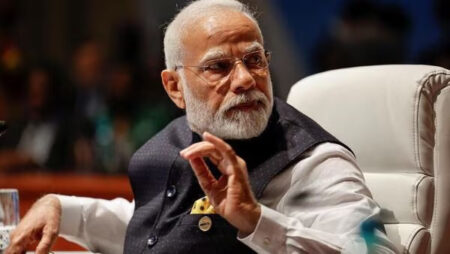In a significant ruling, the Delhi High Court has broadened the definition of “mental cruelty” in divorce cases to include the “financial instability” of a spouse. The court’s decision sets a precedent that acknowledges the emotional toll caused by financial instability within a marital relationship. This groundbreaking judgment has been met with mixed reactions, with some applauding the move for recognizing the nuanced aspects of emotional distress within marriage.
Table of Contents
Financial Instability as Mental Cruelty
The Delhi High Court handed down this groundbreaking verdict while hearing a divorce appeal. In the case, a wife had sought a divorce on the grounds of cruelty and desertion by her husband, who she claimed had subjected her to financial instability and emotional distress. The couple had married in 1989 but separated in 1996, living apart for nearly 27 years.

The court observed that the wife had been working while the husband was unemployed, leading to a significant financial disparity between them. The judges noted that the husband’s inability to maintain financial stability had resulted in mental anxiety for the wife, which further contributed to their deteriorating relationship. The court opined that such a situation amounted to “mental cruelty” and could be considered a valid ground for divorce under Section 13(1)(ia) of the Hindu Marriage Act.
The Court’s Findings
In its verdict, the Delhi High Court highlighted the following key points:
1. Financial Instability as Mental Cruelty: The court emphasized that financial instability could be regarded as a form of mental cruelty within a marriage. The constant anxiety arising from a spouse’s inability to sustain themselves economically can have a detrimental impact on the mental well-being of the other spouse.
2. Separation as Mental Cruelty: The court also stressed that a prolonged separation of nearly 27 years, with no efforts at reconciliation, amounted to mental cruelty. It opined that the absence of marital relations and the deprivation of each other’s company over such an extended period could only be interpreted as cruel.
3. Desertion Grounds: Additionally, the court ruled that the husband’s intent to not resume the matrimonial relationship for more than two years prior to filing the divorce petition constituted grounds for divorce on the basis of desertion under Section 13(1)(ib) of the Hindu Marriage Act.

Mixed Reactions and Legal Implications
The Delhi High Court’s decision to consider financial instability as a form of mental cruelty has generated mixed reactions within legal circles. While some applaud the court’s recognition of the complex emotional dynamics within marriages, others express concerns about the potential misuse of this interpretation in divorce cases.
The ruling has broader implications for divorce proceedings in India, potentially opening the door for spouses to seek divorce on the grounds of financial instability. It underscores the importance of addressing economic issues within a marital relationship and encourages parties to consider counseling and mediation before resorting to divorce.
The Delhi High Court’s recent judgment expands the scope of “mental cruelty” within divorce cases to include financial instability as a valid ground for seeking divorce. This landmark decision highlights the evolving understanding of emotional distress within marital relationships and emphasizes the importance of addressing economic issues early on to maintain a healthy partnership. As legal interpretations evolve, it remains essential for couples to seek professional guidance and explore reconciliation options before pursuing divorce.
Read More: Great Wall of China ‘Irreversibly Damaged’ by Workers













